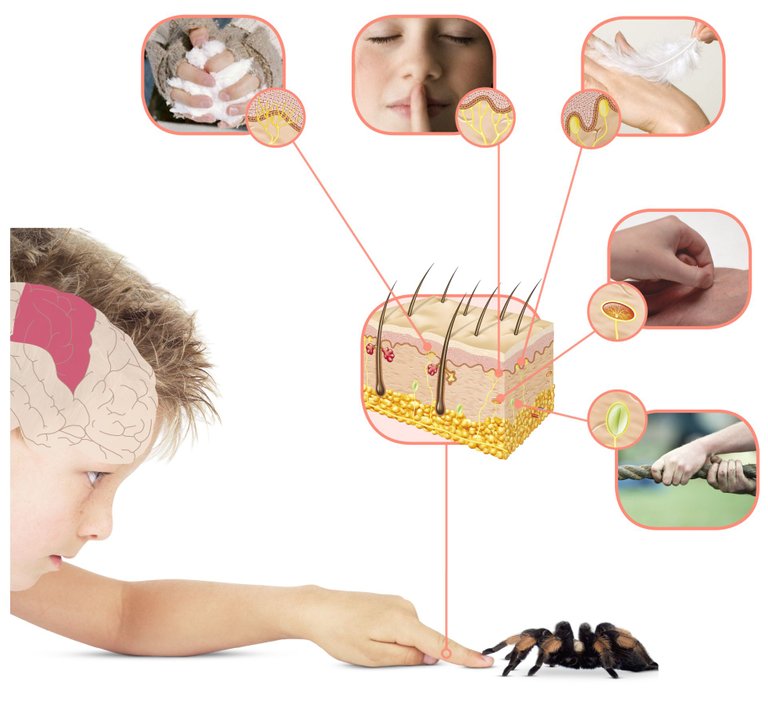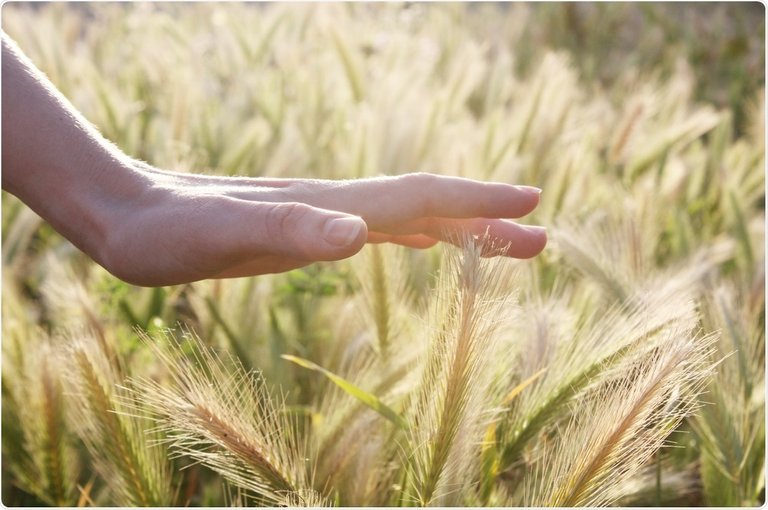Capturing the sense of touch to improve prosthetics/Capturando el sentido del tacto para mejorar las prótesis

Source
During the last year due to the pandemic we have had to reduce physical contact beyond our most direct family and surely, like me, you have already realized how important physical contact with other people can be, even excluding the sexual nuance that this may have.
Durante el último año por culpa de la pandemia hemos tenido que reducir el contacto físico más allá de nuestra familia más directa y seguro que, como yo, ya os habéis dado cuenta de lo importante que puede llegar a ser el contacto físico con otras personas, incluso excluyendo el matiz sexual que esto pueda tener.
Although we are not aware of it, every time we touch something thousands of nerve fibers and millions of neurons enter the scene in the brain, these nerve terminals send signals to the brain about the temperature, roughness, shape, pressure, etc. of the object that we have touched what forms patterns in neurons that help us to recognize said object.
Aunque no seamos conscientes de ello cada vez que tocamos algo entran en escena miles de fibras nerviosas y millones de neuronas en el cerebro, estos terminales nerviosos envían al cerebro señales acerca de la temperatura, rugosidad, forma, presión, etc del objeto que hemos tocado lo que forma patrones en las neuronas que nos ayudan a reconocer dicho objeto.

Source
Normally the discipline that deals with the sense of touch from a physiological point of view is neuroscience, however scientists from various disciplines such as mechanical engineers, mathematicians and experts in new materials are studying to find practical applications to all this knowledge.
Normalmente la disciplina que se ocupa del sentido del tacto desde un punto de vista fisiológico es la neurociencia sin embargo científicos de diversas disciplinas como ingenieros mecánicos, matemáticos y expertos en nuevos materiales están estudiando para poder encontrar aplicaciones prácticas a todos estos conocimientos.
The discipline that studies touch is called haptic and comes from the Greek "haptos" which means to touch and it studies the way to record, for example, the vibrations that the skin of our fingers produce when we touch different textures and how it interacts with them. bristling, sinking, etc.
La disciplina que estudia el tacto se denomina háptica y viene del griego "haptos" que significa tocar y en ella se estudia la manera de registrar por ejemplo las vibraciones que se producen la piel de nuestros dedos cuando tocamos distintas texturas y como ésta interactúa con ellas erizándose, hundiéndose, etc.

Source
At the same time they study the behavior of the brain in these situations, which neuron patterns are activated with each texture or sensation and how stimuli travel through our body, which will allow us to build prosthetic limbs capable of feeling heat, pain or the caresses of the loved one. .
Al mismo tiempo estudian el comportamiento del cerebro ante estas situaciones, que patrones de neuronas se activan con cada textura o sensación y como viajan los estímulos por nuestro cuerpo, lo que permitirá construir miembros protésicos capaces de sentir calor, dolor o las caricias del ser amado.
And ultimately, although it sounds more prosaic and less philanthropic, for its application in virtual reality devices that, today, are far from producing tactile sensations to their users and this could be very useful not only in telemedicine or festive erotic applications but also for online shopping, for example, which would allow us to feel the texture of a garment or a sofa.
Y en última instancia, aunque suene más prosaico y menos filantrópico, para su aplicación en los dispositivos de realidad virtual que, hoy por hoy, están muy lejos de producir sensaciones táctiles a sus usuarios y esto podría ser muy útil no solo en la tele medicina o aplicaciones erótico festivas sino mismamente para la compra online por ejemplo, que nos permitiría sentir la textura de una prenda de ropa o un sofá.
More information/Más información
https://www.sciencenews.org/article/touch-sense-tech-haptics-prosthetics-digital